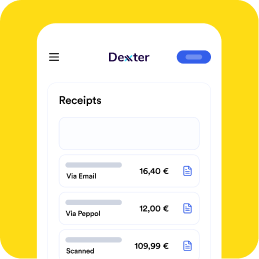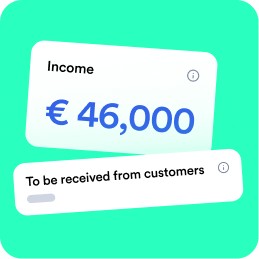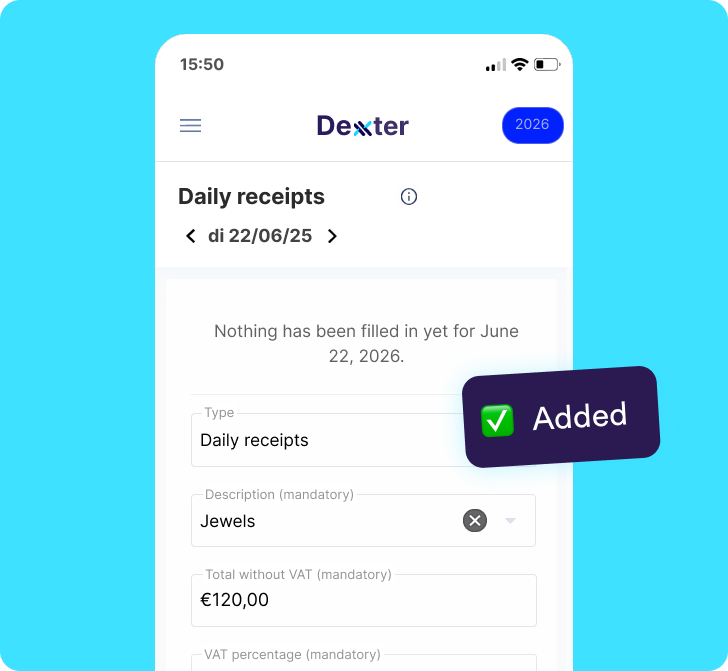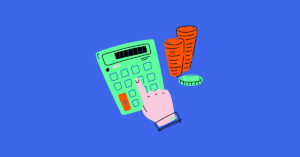What is the starting capital? 🔎
When you start a business, you often need some money to do the initial purchases. We then call this the ‘start-up capital’, or the money you transfer from your private bank account to your professional bank account.
Unlike with a company, with a sole proprietor you are not required to have a minimum amount of starting capital at all ! But even though you are not required, in practice, entrepreneurs make a transfer to their business account after starting their sole proprietors. Start-ups do this so that some money is available at start-up to pay for initial expenses.
So how does start-up capital work for sole proprietors?
Transferring from your private bank account to your sole proprietor’s business account is just like transferring from one private bank account to your other private bank account.
You can transfer in at the start without any problem to your business bank account, when you have enough reserve you may also transfer that back. Sometimes you may also have to make a big purchase but temporarily don’t have enough cash flow. Even then, you may feel free to transfer some more to bridge that period.

Tip:
When making a transfer, always use the comment. This creates clarity both for yourself and for the tax authorities.
How should you account for start-up capital?
We have seen the question pop up many times in our Dexxter community: how do I process the start-up capital from my sole proprietors in the accounts? Do I need to declare the start-up capital somewhere?
The answer is actually quite simple: accounting-wise, this transaction doesn’t matter, so you don’t have to declare it anywhere when you transfer private money to your business (in a sole proprietor).
As soon as your professional bank account states some surplus, you might pay back the starting capital to your private bank account, but this has no fiscal or accounting consequences. Just because you are basically just transferring money from yourself to yourself, the fact that it is a professional bank account makes no difference.
A sole proprietor is known for its simple administration, one of the many advantages of this form of business, which means that accounting start-up capital does not have to be declared anywhere.
What in case of a tax audit? 🛂
For expenses in your accounts, the taxman who is going to look only at your professional purchases. He will check these via invoices, receipts, cabinet tickets… This is not done via your bank account.
Then, to check your income, the tax authorities will look at your sales invoices, credit notes, daily receipts entered….
But the financial transactions behind those purchases and income? The cash flow, transfers, cash payments, and so on, those don’t make any difference to the accounting in a sole proprietor.

Did you know?
An auditor may well request bank statements from your professional bank account during a tax audit. For example, to check incoming transfers to your bank account.
Did you transfer money to the professional bank account yourself? No problem and no accounting or fiscal impact. If, for example, some people have transferred money to your professional bank account without a sales invoice in your accounts, this will provoke the necessary questions.
Tip: It is not required, but a professional bank account for your self-employed activities is always useful! If only to keep a summary, so you can keep a good track of who of your customers has already paid, how much goes out of the account to pay certain professional expenses, how fast your business has grown financially over the months….
While transferring personal money to your sole proprietor does not have a tax impact per se, it is important to remember that profits from your business are automatically considered your income.
This means that the profit you make from your sole proprietorship is subject to personal income tax. At the end of the year, you will have to pay that personal income tax, which makes it advisable to put some money aside in your account.
So it is very important to manage your finances and tax affairs carefully. This includes keeping track of all business income and expenses, filing proper tax returns and preparing invoices correctly.

Tip
Through Dexxter, you can always see at a glance what your income, expenses and deadlines are. You really do have insight into the figures from your business at all times!

















